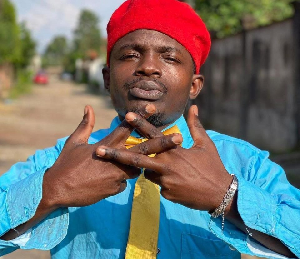Cameroon, often described as Africa miniature, is one of the most politically stable countries in Africa. Many geopolitical analysts raise the status of the 20 million-populated State to that of an island of peace.
Unlike neighbouring Chad, Central African Republic (CAR), Congo, Equatorial Guinea and Nigeria, arguments tabled at the international scene indicate that the country which gained its independence from France and Britain in 1960 and 1961 respectively (French Cameroon and British Southern Cameroons) has never suffered from a successful coup d’état.
Disturbing bells This reputation does not exonerate it from its relative and contested drive to democracy as acts of terror are unremittingly ringing bells of caution along Cameroon’s territorial borders. Worthy to highlight are threats from Boko Haram (northern Cameroon); the Bakassi Freedom Fighters (western Cameroon); anti-Balaka and Seleka militias (eastern borders with the CAR). These increasing pockets of insecurity are worrisome.
According to the February 4, 2014 edition of a local tabloid Le Septentrion, senior officials of Boko Haram have issued a warning signal to President Paul Biya to avoid the ruthlessness of the Islamist group on Cameroon soil. The message advised the 81-year-old leader, who has been in power since November 6, 1982, to cancel secret negotiations with Nigerian authorities to coil the group’s activities in Northern Nigeria.
Boko Haram freed, prior to this explicit restraint, French-born hostages; the Tanguy Moulin-Fournier family and Reverend Father George Vandenbeusch last year, through tactful arrangements with Cameroonian negotiators.
On the other hand, the shores of the Atlantic Ocean, to the west of Cameroon have equally been targeted by pirates operating in the Gulf of Guinea. Experts from the International Maritime Bureau (IMB) claim that the region has been plagued with series of onshore and offshore pirate attacks that are more threatening than those in the Gulf of Aden.
The US Permanent Representative to the United Nations, Susan Rice during a February 27, 2012 presentation to the Security Council emphasised on the potential damage of piracy in this region if snubbed by the international community.
“The United States believes that piracy in the Gulf of Guinea requires the strongest possible regional response, with international help. That is why, since 2007, the U.S. has provided approximately $35 million in assistance to regional states to build maritime security capacity, including coastal radars, equipment, boats, and associated training. The United States is committed to working with our African and other international partners through programs like the Africa Partnership Station and the Africa Maritime Law Enforcement Partnership” she said.
Lastly, militia incursions in the East region of Cameroon have equally been incommodious. Here, elements of Seleka and anti-Balaka often cross the western borders of CAR and cause havoc to the local population. The overthrow of François Bozize, the resignation of Michael Djotodia, and the installation of little-known Catherine Samba-Panza at the helm of CAR have left militias from the various factions to act like free electrons.
Spill over effects Any spill over from the aforementioned terror would inevitably affect the economy of Cameroon. The country acts as a transit zone to landlocked Chad and the CAR. For example, it is host to the IMF/World Bank sponsored Chad-Cameroon Petroleum Development and Pipeline Project. 450 tankers and trucks destined to Bangui have remained immobile since the onset of the conflict, with an estimated $3 million loss per month.
Furthermore, piracy could hamper the exploration and exploitation of oil reserves in the Bakassi Peninsular. On August 14, 2013, this area was fully handed over to Cameroon in respect of the October 10, 2002 International Court of Justice ruling but it remains a high risk corridor with the presence of elements of the Bakassi Freedom Fighters.
These conflicts from the north, west and east has forced thousands to flee into Cameroon. Images released on YouTube by the International Committee of the Red Cross (ICRC) show over 3.000 displaced persons thousands crossing into Garoua Boulai (Cameroon) from northern CAR. Also, the United Nations High Commission for Refugees recorded closed to 5.000 entries from northern Nigeria in early January 2014 alone.
Contingency plans French involvement in the resolution of these dangers cannot be ignored. December 6 and 7, 2013 saw the holding of a France-Afrique Summit in Paris where President François Hollande’s government vowed to increase military aid to African nations. Official figures indicate that 1.600 French boots, under the protection of the UN Security Council, are at the forefront of restoring peace in the CAR with Operation Sangaris.
Back on the continental stage, the African Union in its 22nd ordinary session focused on the CAR crisis and tensions ravaging the young South Sudanese State. Though the AU lacks a well-structured military force to intervene in situations like the case in CAR, African countries have pledged to increase from 4.400 to 6.000 peacekeeping soldiers under the banner of the International Support Mission to the Central African Republic (MISCA).
AU authorities equally disclosed that international donors have pledge $314 million fund at the end of a donor conference at the Ethiopian capital, Addis Ababa.
Averting the cankerworm The million dollar question is how these external colours of terror could destabilise Cameroon. Mr Ni John Fru Ndi, Chairman of Social Democratic Front (SDF), Cameroon’s leading opposition party, openly stated that the country is ticking at the rhythm of a time-bomb.
Similarly, Honourable Fodio of the ruling Cameroon People’s Democratic Movement (CPDM) castigated the flamboyant life-style of top military officials who ride in SUVs, while the country is facing insecurity in the East region. Honourable Mandio was showered with criticisms and tagged as an alarmist.
That notwithstanding, measures have been put in place by Cameroonian authorities to counteract these axis of evil that could befall the country. For example MISCA now benefits from the military prowess of Cameroonian-born Brigadier General Martin Tumenta Chomu.
President Paul Biya and his counterparts of the Economic Community of Central African States (ECCAS), the Economic Community of West African States (ECOWAS), the Gulf of Guinea Commission, and other international stakeholders held the first ever Summit on Security and Safety in the Gulf of Guinea in June 2013.
In addition, measures to repost the army under the supervision of Mr Edgard Alain Mebe Ngo’o, Minister Delegate at the Presidency in charge of Defence, have been approved with the recent recruitment of 2.000 troops into the elite force. This is coupled to a presidential redeployment of top officials in the police force across the ten regions of Cameroon.
Could these moves stop the rolling balls of insecurity into the island of peace? That remains to be decrypted.
Opinions of Saturday, 18 October 2014
Auteur: Mbenju Mafany
Decrypting balls of terror at Cameroon’s doorsteps
Actualités













